Climate-friendly cleaning at REHAB Basel
05.04.2023
In 2020, the REHAB Basel rehabilitation centre switched to cleaning with granulates for environmental reasons. This had a positive side effect: cleaning has not only become climate-neutral, but also much safer for staff and patients alike. What makes Wetrok Granuline so environmentally friendly, and which are the twelve improvements that REHAB Basel achieved through this forward-thinking step?
Better for the environment, safer for her staff – that was Anna Maria Briatico’s idea of future-oriented cleaning. At the time, the Head of Housekeeping & Hospitality at REHAB Basel could not imagine that liquid detergents would have no part in this. In 2020, she and her team of 42 started looking for a more climate-friendly alternative for cleaning. She found what she was looking for at Wetrok.
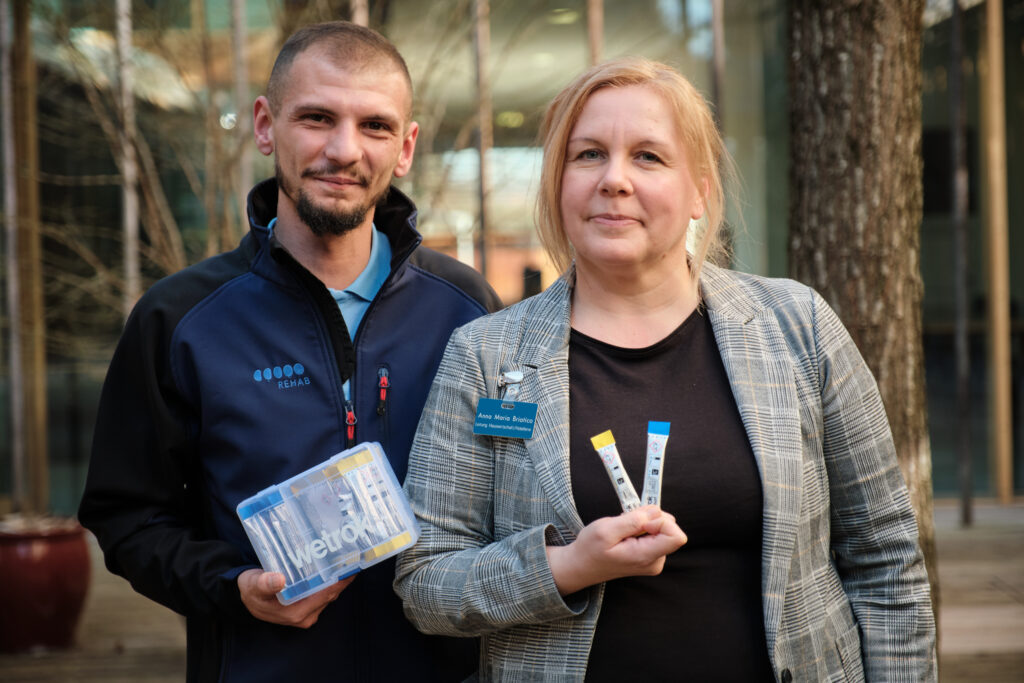
Plenty of wood and floor-to-ceiling windows
REHAB Basel is a highly specialised facility for neurorehabilitation and paraplegiology. People who have suffered brain damage or paraplegia come here to recover and find a way back into life. From an architectural perspective, REHAB Basel aids their recovery with a natural, calm and inviting environment with floor-to-ceiling window facades, light, warm wood tones and a green park area with a therapeutic zoo. The ambiance is as healing for the patients as it is challenging for the cleaning team. This is due to the large share of wood and glass in particular. «The delicate parquet flooring requires great care when it comes to selecting cleaning products and applying cleaning methods. In addition, cleaning our glass facades and floor-to-ceiling windows is very time-consuming,» says Anna Maria Briatico, summing up the challenges posed by cleaning the building.
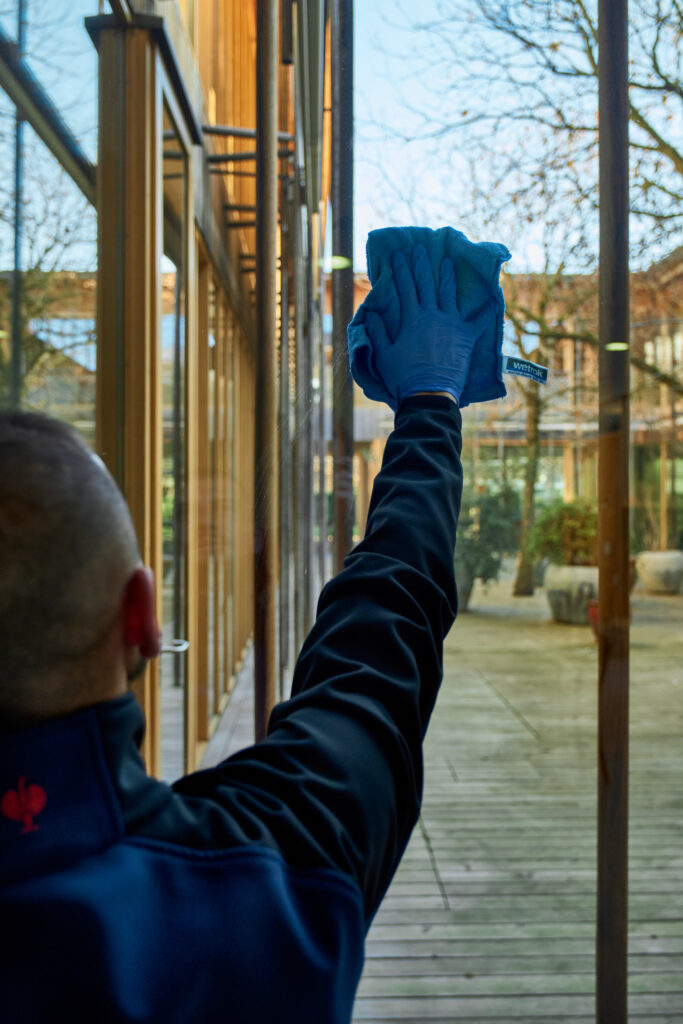
A seven-item requirement catalogue
The new cleaning product had to fulfil high demands: it had to be environmentally friendly, safe, easy to dose, efficient and both powerful and gentle on materials. «What’s more, we only have a very small storage area, so I was looking for a solution that needed little room,» Anna Maria Briatico adds to round off the list of requirements. The solution: granulate cleaners (Wetrok Granuline). The water-free cleaning granulates do not only meet all of those seven requirements, they also allow for easier processes from delivery through to disposal.
How the 5 Granuline products are used at REHAB Basel:
- Granusan (sanitary maintenance cleaner):
Maintenance cleaning of wet rooms in the patients’ rooms / public lavatories - Granusan forte (basic sanitary cleaner):
Intermediate cleaning of wet rooms in the patients’ rooms / public lavatories + maintenance cleaning of toilet bowls - Granubowl (WC cleaner):
Deep cleaning of all toilet bowls - Granufloor (floor maintenance cleaner):
Maintenance and intermediate cleaning of all floors (parquet, natural rubber, epoxy resin) using the scrubber-dryer - Granusurf (surface and all-purpose cleaner):
Maintenance cleaning of floors in the patients’ rooms (manual wet mopping) + maintenance cleaning of all surfaces (mirrors, door handles, tables, wooden door frames, wardrobes, physiotherapy equipment, bed assist bars)
A small plastic box replaces a tall stack of canisters
For granulate cleaning, only the granulate itself needs to be transported: the active agent that is not available at the destination. «Liquid detergents contain around 80 percent water, so we avoid to transport huge amounts of water – and we don’t need to store it either,» explains Anna Maria Briatico, brimming with excitement. The environmental progress associated with the introduction of the Wetrok Granuline was an issue that even attracted great attention at the management level. Anna Maria Briatico presented the enormous resource savings that are possible with the Granuline in a board meeting: she put up a tall stack of canisters and next to it, she placed a small plastic box filled with granulate sachets. «The content of the small plastic box enables us to clean a whole storey with 40 rooms for a whole week – in the past, this took the entire stack of canisters with liquid detergents,» she said, contrasting the two options. After that, the switch to granulate cleaning products was a done deal.
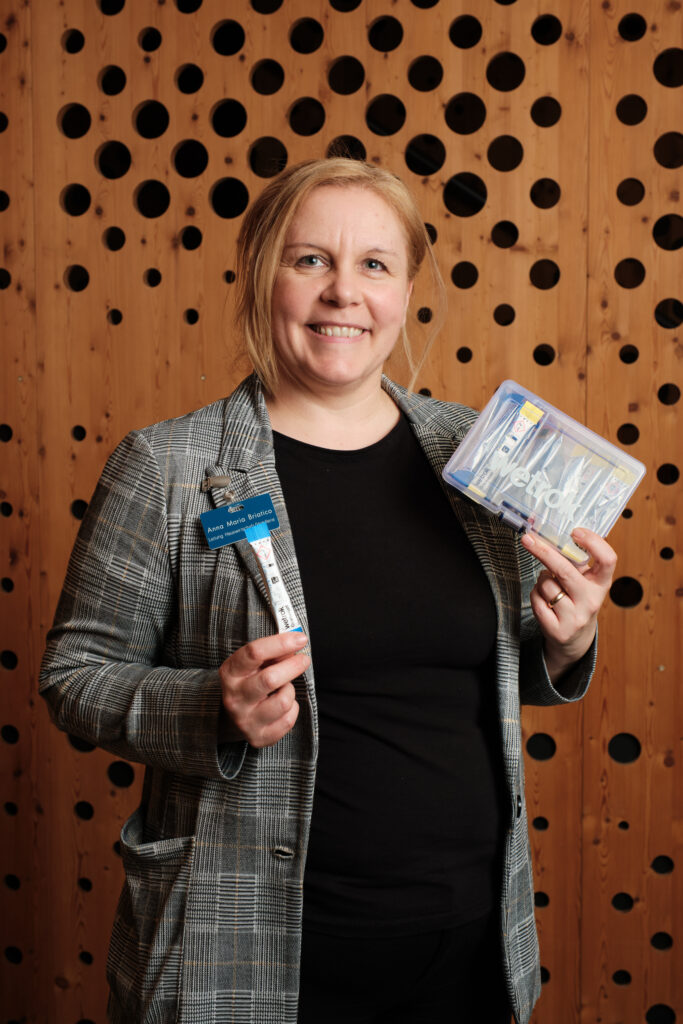
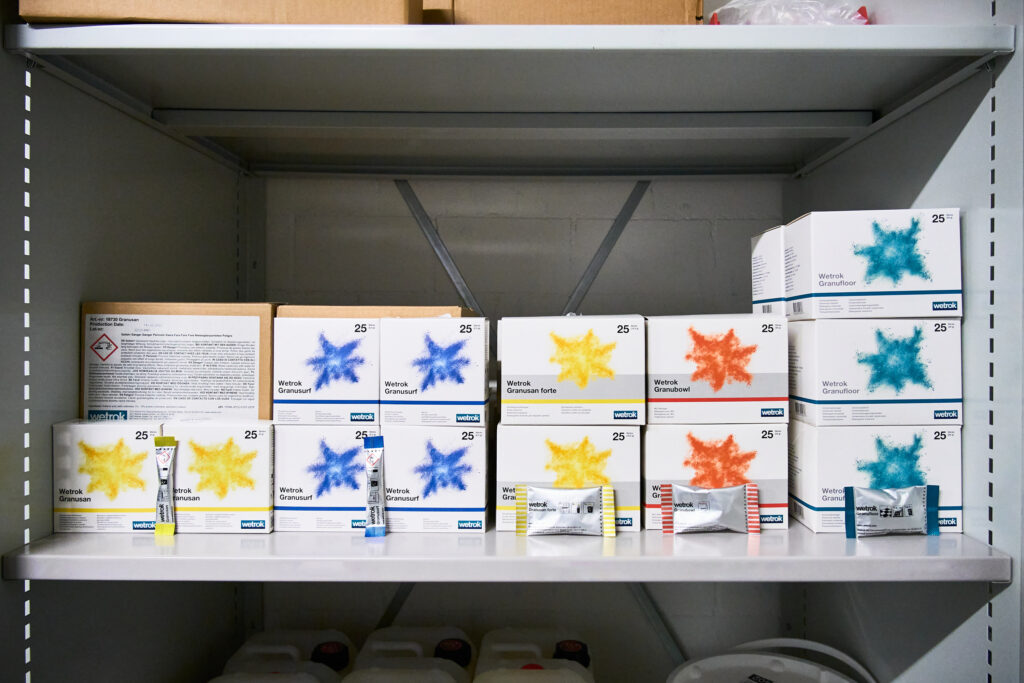
Clean surfaces without aerosol emissions
In the past, a range of sprays was used to clean surfaces such as tables or therapy equipment. The significant downside: aerosols were released – this solution was not healthy for the respiratory system. The head of cleaning is pleased that this is now a thing of the past. These days, her team cleans all surfaces using a single cleaning product: Wetrok Granusurf. The product is suitable for bed assist bars, wooden door frames and even windows. The method is really simple: the cleaning staff member fills a foam bottle with water up to the mark, adds the granulate (pre-dosed individual sachets), and the cleaning solution is ready to use. After a quick shake, the bottle emits runny foam that the cleaning staff member applies to a microfibre cloth. This method is completely vapour-free – to the benefit of staff and patients alike.
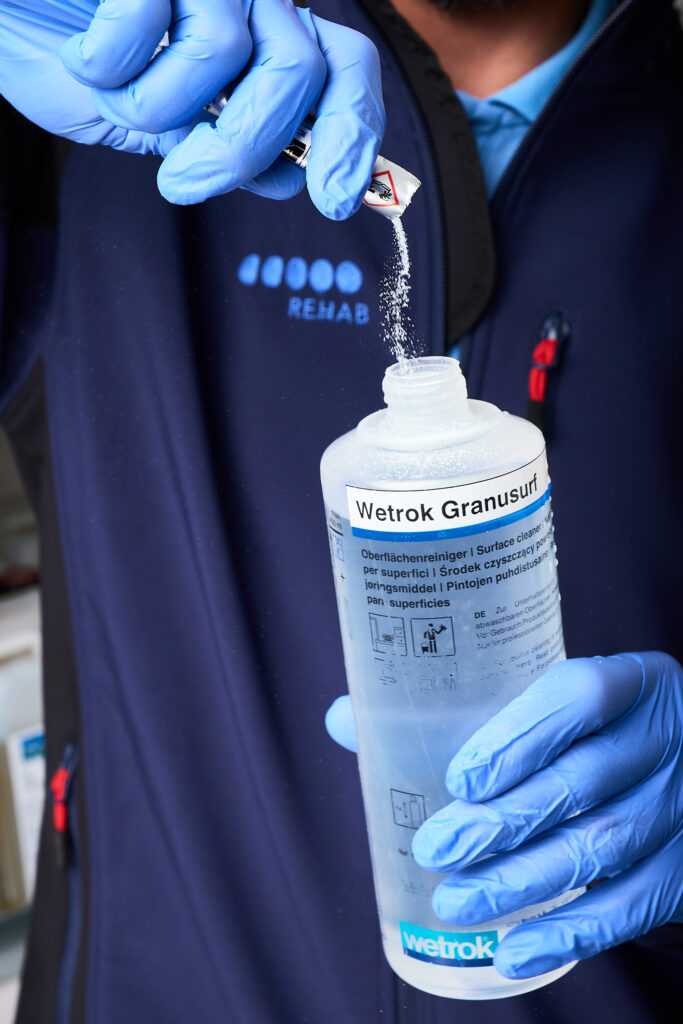
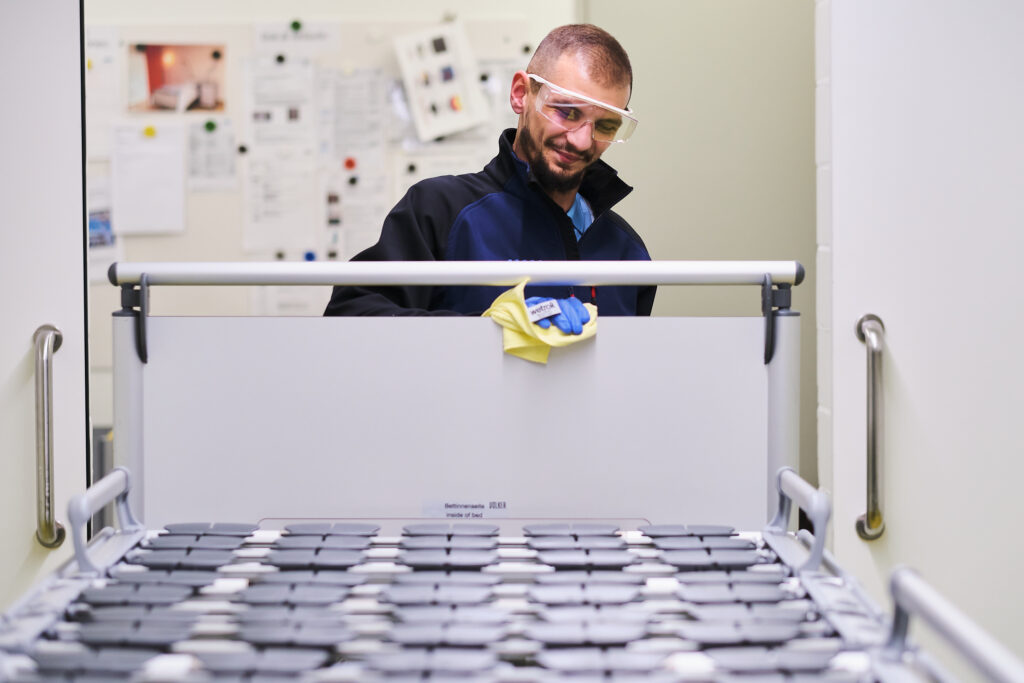
1 granulate sachet per toilet bowl
Air quality was also an issue with regard to sanitary cleaning. In the past, cloths that had been prepared in the washing machine were used for sanitary maintenance cleaning, and a concentrate was used for cleaning lavatories. «The highly acidic cleaning product always left a pungent smell in the wet rooms,» Anna Maria Briatico recalls. Switching to the granulate has made this a thing of the past. Wash basins, fittings and showers are now cleaned using Granusan (maintenance cleaning) and Granusan forte (intermediate cleaning). In addition, Granubowl is used for deep cleaning of the lavatories. Here, the cleaning staff members pour the content of a pre-dosed granulate sachet into the toilet bowl and froth up the granulate with water to create an extremely powerful cleaning solution. «The straightforward principle where 1 sachet is used for 1 application does not only make the staff more independent and confident, it also means that we, as supervisors, can save a lot of time for preparation and checking,» the head of cleaning reports with satisfaction.
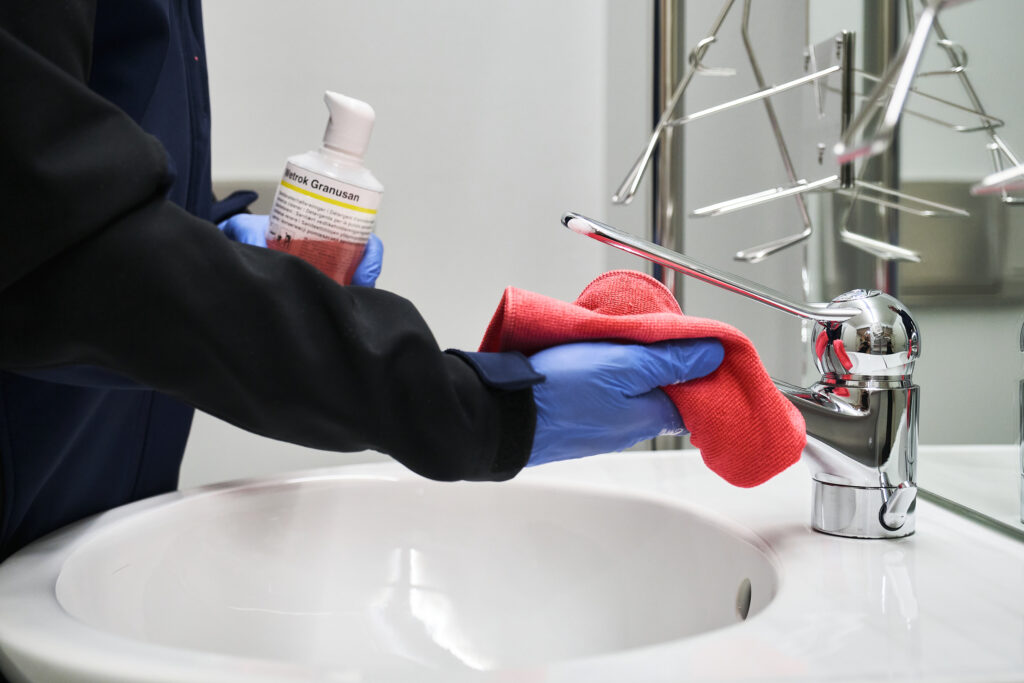
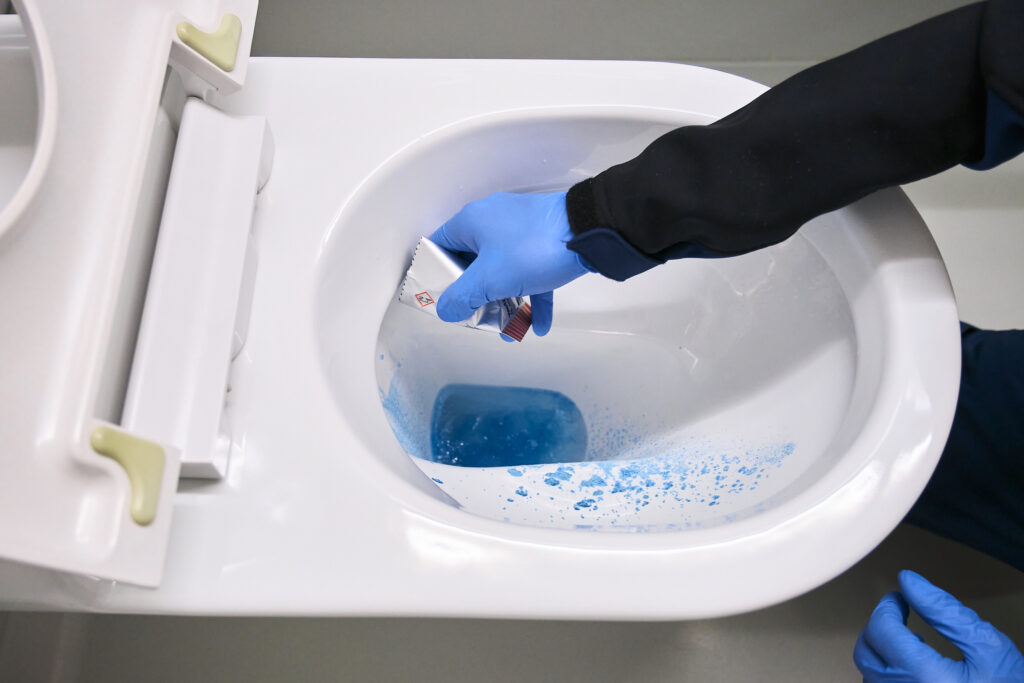
Floor cleaning granulate – suitable for manual and machine cleaning
Sealed parquet accounts for a large share of the floor space at REHAB Basel. Other types of flooring include concrete, natural rubber and epoxy resin. The many smooth transitions between wooden flooring and elastic floor coverings pose a particular challenge. It is a great advantage that, since the switch, a single granulate cleaning product can be used for all types of flooring. This is a very effective approach for preventing damage to materials. The floor in the patients’ rooms is wet-mopped with pre-moistened mops. For this cleaning method, the cleaning staff members place the mops in a box and pour on a mixture of granulate and water. After a brief contact time, a fresh mop is available for each room. For efficiency reasons, a scrubber-dryer is used for cleaning the hallway floors. Here, the application is really simple, too: one pre-dosed granulate sachet is used for one tankful of water.
Using granulate has been an all-round success
Anna Maria Briatico is still enthusiastic about granulate cleaning after two and a half years. But how about the cost side? «If considered by itself, the product is more expensive than liquid detergent. However, if you factor in all process costs and operational gains, the bottom line is that cleaning has become more cost efficient,» Anna Maria Briatico points out. She adds that the granulate has led to an impressive twelve practical improvements at REHAB Basel (see box).
12 improvements
Switching from liquid detergents to granulate cleaners has given rise to the following specific improvements at REHAB Basel:
✓ Improved air quality for staff & patients (no more aerosols)
✓ Healthier work processes (no more lifting, refilling and lugging around of heavy canisters)
✓ Healthier work processes Prevention of workplace accidents (no risk of splashing, no back pain)
✓ Accepting environmental responsibility (100% climate-neutral cleaning products)
✓ Shorter distances (simplification of processes)
✓ Less time needed for preparation and dosing (pre-dosed sachets)
✓ Reduced training requirements (self-explanatory application)
✓ Lower number of cleaning products and reduced level of complexity
✓ More straightforward workflows = reduced burden of control for supervisors
✓ Reduction of storage space by 70%
✓ Reduction of transport costs and carbon emissions
✓ Reduction of disposal costs by 70%
REHAB Basel has arrived in the future of cleaning. However, Anna Maria Briatico is dedicated to an ongoing improvement process like no other. Her vision: «We are now cleaning everything we can with granulate. For us, the cherry on the cake would be to be able to use granulate also for cleaning the kitchen and deep cleaning floors.» This statement reflects the extent to which this new method could revolutionise an entire industry.
Please note: REHAB Basel uses an individual colour coding system for matching cloth colours to the different cleaning tasks.
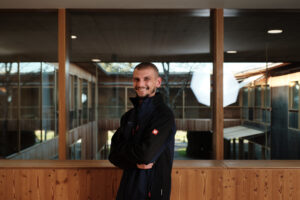
«There is no cleaning product that is easier to dose than Wetrok Granuline.
This is particularly true for lavatories: 1 sachet is used for each toilet bowl. You really can’t go wrong.»
Erkan Bakiu, Team Leader & Cleaning Specialist at REHAB Basel
How Granuline works:

